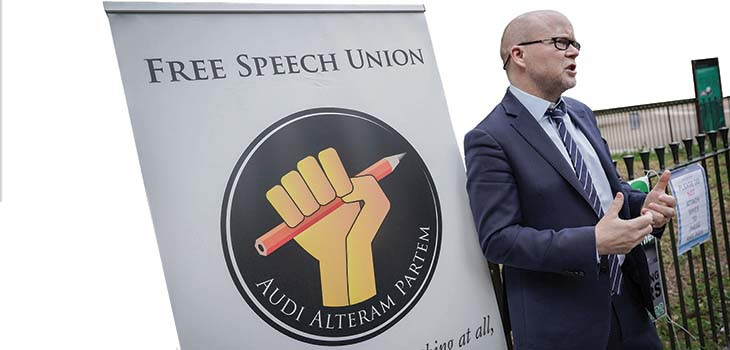
The idea that an organisation specifically conceived and constituted to be a non-partisan defender of free speech could find itself the subject of an attempted ‘cancellation’ ought to be beyond parody. Nonetheless, that is exactly what happened to the Free Speech Union when in September PayPal closed its accounts, without notice or explanation. Given a significant proportion of its subscription fees were received this way, the future of the organisation was thrown into doubt, which is something PayPal must have appreciated was at least a material risk. In the event, following significant pressure on social media and criticism in Parliament, PayPal reversed its decision a week later—but that cannot be the end of the matter.
In March 2022, I wrote an article for NLJ which criticised the Trudeau government in Canada for using emergency powers to seize funds being sent to the trucker convoy protest in Ottawa,









